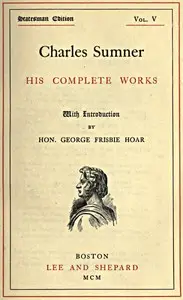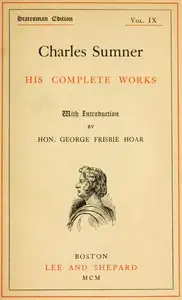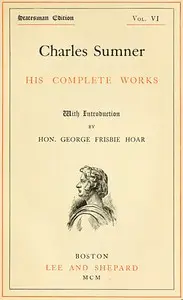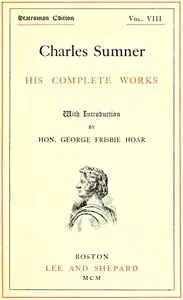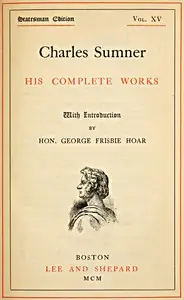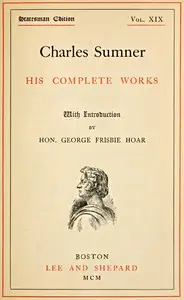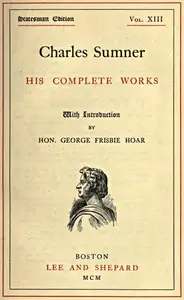"Charles Sumner: his complete works, volume 07 (of 20)" by Charles Sumner is a collection of the senator's speeches and writings from the mid-1800s, focusing on his fight against slavery and for civil rights. It showcases Sumner's strong feelings against the Fugitive Slave Act and his determination to promote human rights through education and moral leadership during the tense years before the Civil War, revealing his calls for justice and a nation free from oppression.

Charles Sumner: his complete works, volume 07 (of 20)
By Charles Sumner
Witness a senator's powerful words ignite a nation as he passionately battles slavery and champions equality in a divided America.
Summary
About the AuthorCharles Sumner was an American lawyer, politician, and statesman who represented Massachusetts in the United States Senate from 1851 until his death in 1874. Before and during the American Civil War, he was a leading American advocate for the abolition of slavery. He chaired the Senate Foreign Relations Committee from 1861 to 1871, until he lost the position following a dispute with President Ulysses S. Grant over the attempted annexation of Santo Domingo. After breaking with Grant, he joined the Liberal Republican Party, spending his final two years in the Senate alienated from his party. Sumner had a controversial and divisive legacy for many years after his death, but in recent decades, his historical reputation has improved in recognition of his early support for racial equality.
Charles Sumner was an American lawyer, politician, and statesman who represented Massachusetts in the United States Senate from 1851 until his death in 1874. Before and during the American Civil War, he was a leading American advocate for the abolition of slavery. He chaired the Senate Foreign Relations Committee from 1861 to 1871, until he lost the position following a dispute with President Ulysses S. Grant over the attempted annexation of Santo Domingo. After breaking with Grant, he joined the Liberal Republican Party, spending his final two years in the Senate alienated from his party. Sumner had a controversial and divisive legacy for many years after his death, but in recent decades, his historical reputation has improved in recognition of his early support for racial equality.



